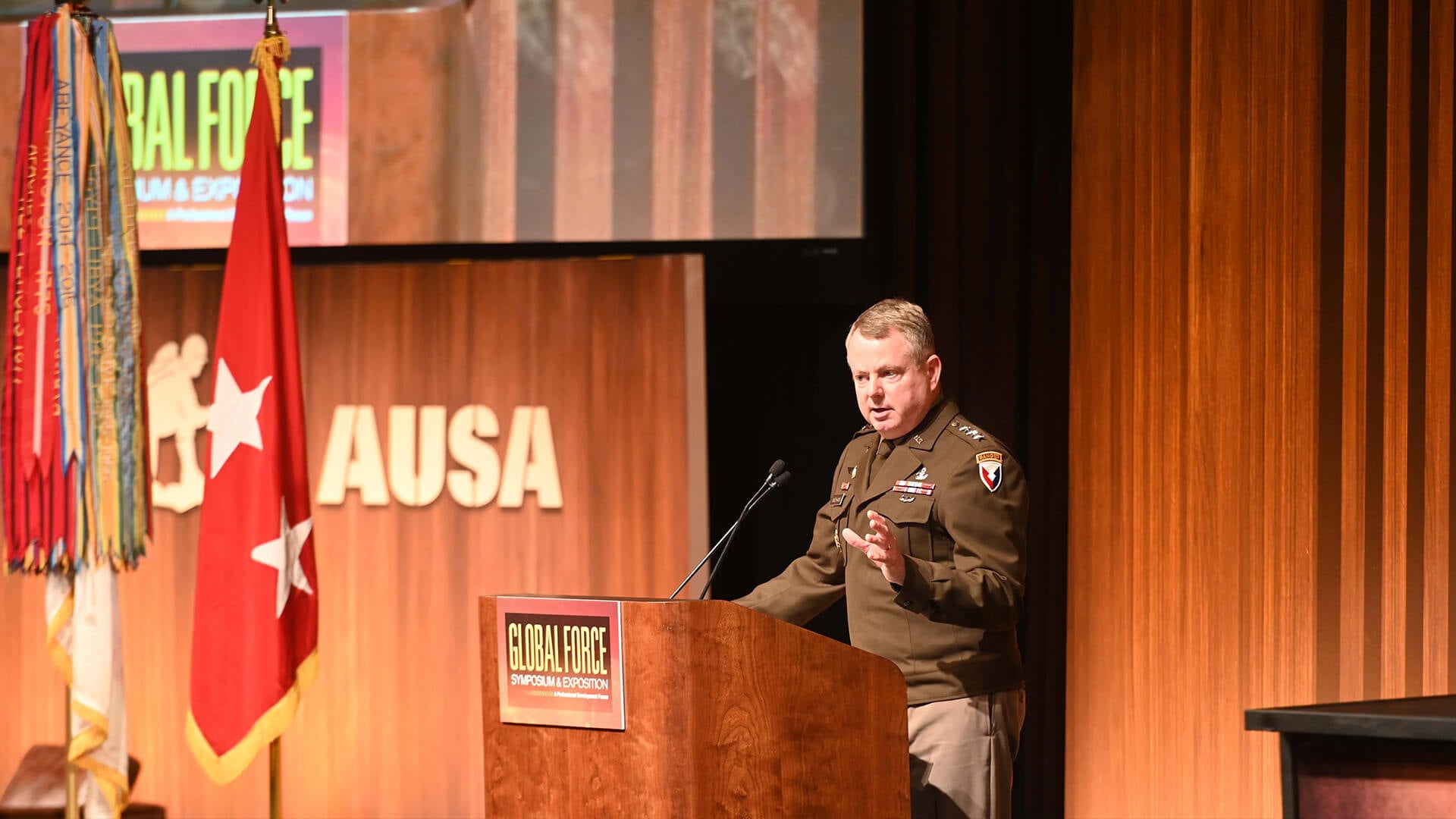Materiel Command ‘Focused’ on Ready Combat Formations
Materiel Command ‘Focused’ on Ready Combat Formations

Army Materiel Command is “totally focused” on delivering ready combat formations around the world and at home, said Lt. Gen. Christopher Mohan, the command’s deputy commanding general.
In a keynote address March 28 at the Association of the U.S. Army’s Global Force Symposium and Exposition in Huntsville, Alabama, Mohan outlined the work being done by the Army’s sustainment enterprise and stressed the importance of working closely with industry partners to achieve the mission.
“We are absolutely committed to shoulder to shoulder work with our industry partners. We do it all the time,” Mohan said. “We can’t do it without you, so we’ve got to talk to each other, we’ve got to sit down across the table and walk the floor at our facilities together so that we can do this together and continue to sustain the greatest Army in the world.”
The Army sustainment enterprise is engaged around the world, Mohan said, describing the war in Ukraine as a “wake-up call,” not only to the fact that the U.S. still has enemies who are “trying to defeat our way of life, but also to the importance of logistics forces.”
To help Ukraine, he said, the Army has marshaled and moved equipment around the globe using more than 8,000 trucks, 236 trainloads and 115 vessels to deliver everything from bullets to hardware to clothing.
None of it could be done without industry, partner countries, Army civilians, the organic industrial base or some of the autonomous and artificial intelligence capabilities resident in additive manufacturing, Mohan said.
“We’ve reformed and changed the way we think about the front end of it, but the back end of it is where we could use some help from industry, because at the end of the day, we still go to a warehouse, we still pull a part off of a wire shelf, put it in a cardboard box and put it on the back of the truck, and it goes off into never, never,” Mohan said. “We’ve got to reform the back part of that and the distribution, and that’s where we can use industry’s help.”
Mohan highlighted the Army’s emerging watercraft strategy, which will include manned and unmanned vessels that will be critical to operations in the Indo-Pacific, and he cited the need to modernize pre-positioned stocks in the Pacific and Europe.
“Army pre-positioned stocks is important to all theaters. It’s got to be modernized, sized, strategically located, and when we have all those elements, it is a true strategic deterrent,” Mohan said, pointing to the success of having issued a heavy brigade combat team set to U.S. soldiers deploying to Germany during the initial Russian invasion. “That was a true strategic deterrent, and we have to continue to invest in that.”

